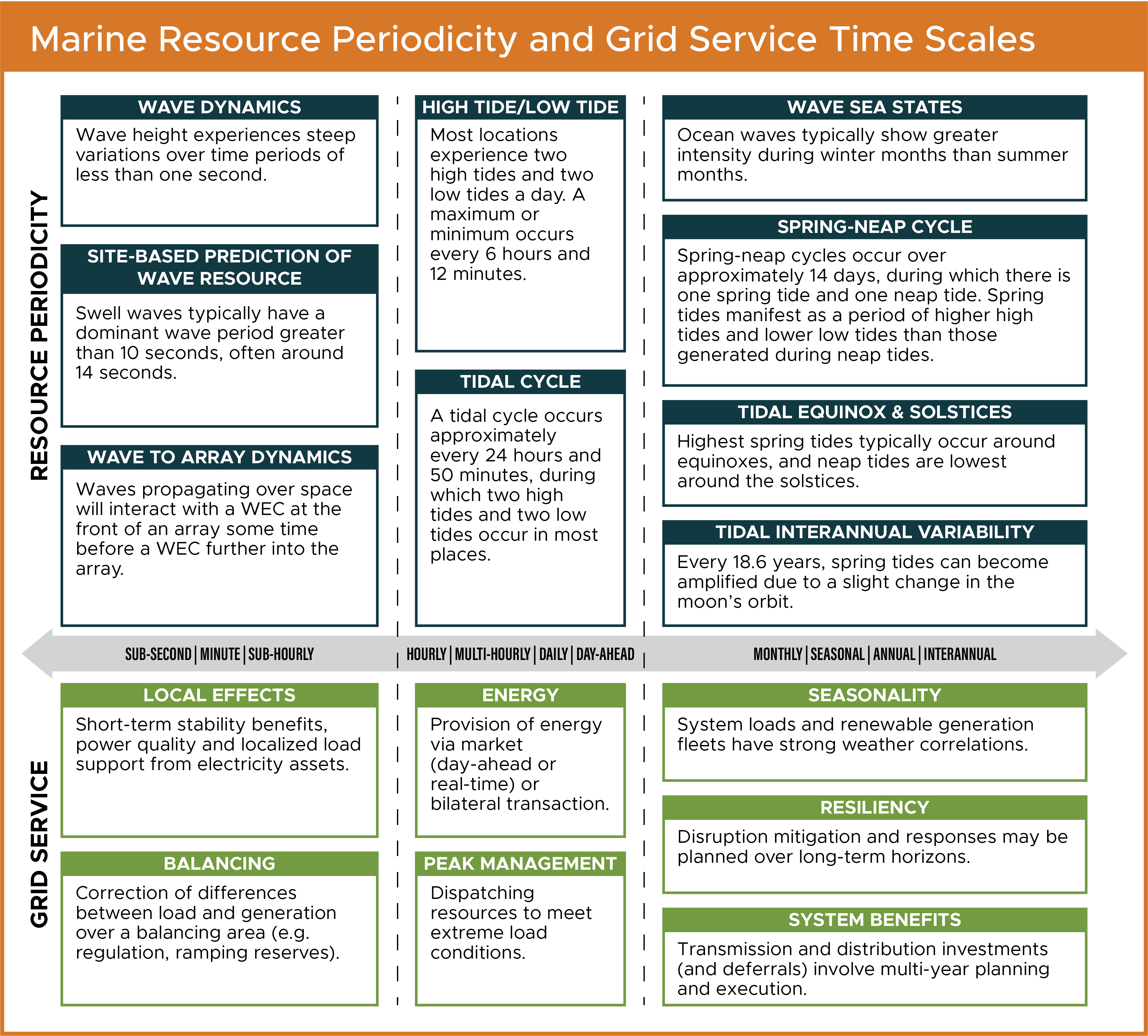Timing Value
Like most renewable energy sectors, marine energy will have variable production. However, marine energy is a relatively predictable resource over a time interval that mirrors the periodicity of the resource. Marine energy production is cyclical due to the periodicity of the originating oceanographic and astronomical forces. The variability and predictability vary between resource types, and their cycles vary from short-term to seasonal: tidal and ocean current resources are directly tied to recurrent patterns over decades, whereas wave resource predictability is short-term but with high persistence effects.
The grid benefits of such persistence are that the timing of marine renewable energy can complement load variability as well as seasonal patterns of more dominant variable renewable generation. When renewable generation can be predicted with high levels of confidence at advance scheduling periods, system operators can reduce system costs for integration. In certain instances, marine renewable energy offers a periodicity that is coincident with grid service timescales.
